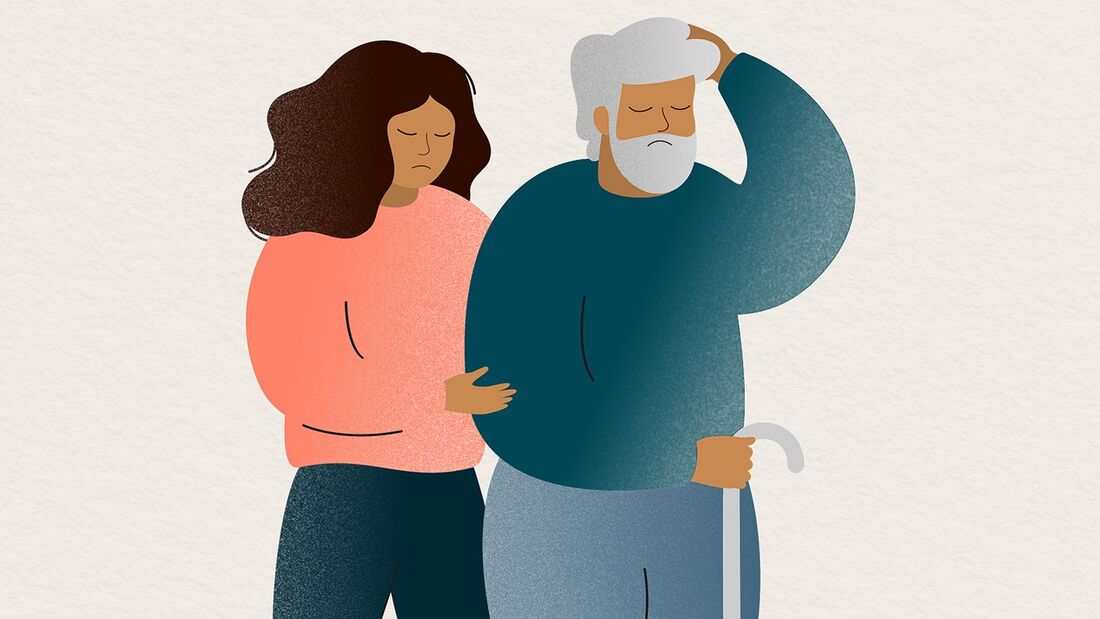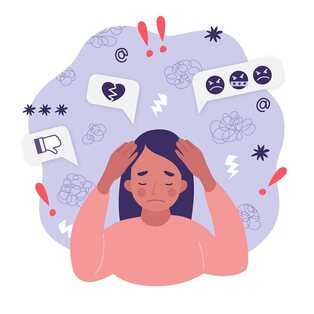Navigating the Transition from Hookup Culture to Meaningful Relationships: A Guide for Clients8/25/2023
In today's fast-paced world, where hookup culture often takes center stage, transitioning from casual encounters to meaningful, lasting relationships can feel like a daunting task. The journey might require a shift in mindset, a reevaluation of priorities, and a willingness to explore emotional depths. If you're seeking guidance on how to make this transition, you're not alone. Many individuals are seeking more meaningful connections, and with the right approach, you can find the fulfilling relationship you desire. Here's a guide to help you navigate this transition:
1. Self-Reflection and Clarity: Before embarking on the journey to a meaningful relationship, take time to reflect on what you truly want. What are your values, goals, and aspirations? What qualities do you seek in a partner? By gaining clarity about your own desires, you can better recognize a compatible partner when you encounter one. 2. Open Communication: In hookup culture, communication often revolves around the logistics of the encounter. Transitioning to a meaningful relationship requires a shift toward open and honest conversations about emotions, expectations, and long-term goals. Practice expressing your feelings and actively listening to your partner. Effective communication is the foundation of any successful relationship. 3. Slow and Steady: Meaningful relationships are built over time. Instead of rushing into physical intimacy, focus on building emotional intimacy first. Spend quality time together engaging in activities that allow you to connect on a deeper level. This gradual approach helps establish a strong emotional bond. 4. Shared Activities and Interests: Explore activities you both enjoy. Shared hobbies and interests can bring you closer and create opportunities for meaningful interactions. Whether it's hiking, cooking, art, or music, engaging in activities together fosters a sense of togetherness and shared experiences. 5. Vulnerability and Authenticity: To transition from hookup culture to a meaningful relationship, it's crucial to be vulnerable and authentic. Share your thoughts, fears, and vulnerabilities with your partner. This openness encourages reciprocity and helps establish trust. 6. Mindfulness and Presence: In a fast-paced world, practicing mindfulness can enhance your ability to connect deeply with your partner. Put away distractions and be present in the moment. Listen actively, observe body language, and appreciate the nuances of your interactions. 7. Mutual Respect: Respect is the cornerstone of any healthy relationship. Transitioning to a meaningful connection involves treating your partner with kindness, consideration, and empathy. Recognize and appreciate their individuality. 8. Emotional Intelligence: Understanding your own emotions and being attuned to your partner's feelings is a hallmark of a meaningful relationship. Emotional intelligence allows you to navigate challenges and conflicts with empathy and understanding. 9. Addressing Fear of Commitment: Transitioning from hookup culture may bring up a fear of commitment. It's essential to address these fears and explore their origins. A qualified psychotherapist can assist in unpacking these emotions and providing strategies to overcome them. 10. Seeking Professional Guidance: Transitioning from hookup culture to a meaningful relationship is a journey that can benefit from professional guidance. A psychotherapist can provide insights, tools, and strategies to navigate this transition, offering a safe space to explore your emotions and thought patterns. In conclusion, transitioning from hookup culture to a meaningful relationship requires a deliberate and mindful approach. It's about moving beyond surface-level connections and embracing vulnerability, emotional intimacy, and open communication. Remember that this journey is unique to you, and there's no fixed timeline. Be patient with yourself and your partner as you both navigate this transformation. With the right mindset, effort, and support, you can create a meaningful and fulfilling relationship that goes beyond the confines of hookup culture. For help transitioning from hookup culture to a meaningful relationship, contact Scott Olds at (303) 817-8369 or email at scott@springsnewhope.com What Is Support?Being supportive in a relationship means providing your partner with the following:
Examples Of SupportHere are some examples of how you can be supportive in a relationship:
Therapy HelpsA therapist can help you and your partner be more supportive in your relationship in a number of ways. They can:
As a psychotherapist and in my personal life, I have seen firsthand the impact that shame can have on caregivers for the chronically ill. Shame can be a powerful emotion that can lead to feelings of isolation, inadequacy, and worthlessness. It can also make it difficult to ask for help or support.
There are a number of reasons why caregivers may feel shame. They may feel ashamed of the illness itself, or of the way it has changed their lives. They may feel ashamed of their own limitations, or of the things they have to do to care for their loved one. They may also feel ashamed of the financial or emotional burden that the illness has placed on their family. Shame can have a significant impact on a caregiver's mental and physical health. It can lead to anxiety, depression, stress, and burnout. It can also make it difficult to cope with the demands of caregiving. If you are a caregiver for a chronically ill loved one, it is important to remember that you are not alone. There are many other caregivers who are going through the same thing. You are not to blame for the illness, and you are not inadequate. You are doing the best you can in a difficult situation. If you are struggling with feelings of shame, there are things you can do to cope. First, it is important to talk to someone about how you are feeling. A therapist can help you to understand your shame and develop coping mechanisms. You can also find support groups for caregivers, where you can connect with others who understand what you are going through. It is also important to remember to take care of yourself. Make sure to get enough sleep, eat healthy foods, and exercise regularly. You should also make time for activities that you enjoy. Taking care of yourself will help you to be better able to cope with the demands of caregiving. If you are struggling with feelings of shame, please know that you are not alone. There is help available. Please reach out for support. Here are some additional resources for caregivers who are struggling with shame:
If you are struggling as a caregiver and need help, contact Scott at (303) 817-8369 or scott@springsnewhope.com. As a psychotherapist, I have seen firsthand the emotional and psychological toll that chronic illness can take on individuals and their families. The physical symptoms of chronic illness can be debilitating, but the emotional and psychological effects can be just as challenging.
Some of the common emotional and psychological challenges that people with chronic illness face include:
If you are struggling to cope with the emotional and psychological effects of chronic illness, please reach out for help. There is no shame in seeking help, and it can make a big difference in your quality of life. Tips for Coping with the Emotional and Psychological Toll of Chronic Illness
To find out more, schedule an appointment with Scott Olds at (303) 817-8369 or email me at scott@springsnewhope.com. As a psychotherapist, I often work with highly sensitive people (HSPs) who struggle with anxiety. HSPs are individuals who process information more deeply and intensely than the average person. This can make them more susceptible to anxiety, as they are more likely to be overwhelmed by sensory stimuli and emotional triggers.
There are a number of ways that a psychotherapist can help an HSP manage anxiety. Here are a few of the most common:
Here are some additional tips for HSPs who are struggling with anxiety:
If you are a highly sensitive person (HSP) in an abusive relationship, you may feel overwhelmed, exhausted, and even hopeless. You may be wondering if you are crazy or if you are just too sensitive.
The truth is, you are not crazy. You are simply a highly sensitive person who has gotten into a relationship with an abuser. Abuse can take many forms, including physical, emotional, verbal, and financial abuse. As an HSP, you are naturally empathic and caring. You are drawn to people who are in need, and you want to help them. This makes you a prime target for an abuser. Abusers are often very good at manipulating and controlling others, and they can easily take advantage of your sensitivity. If you are in an abusive relationship, you may be experiencing some of the following:
If you are ready to get out of your abusive relationship, there are a few things you can do:
If you are a highly sensitive person in an abusive relationship, please know that you are not alone. There is help available. Please reach out to Scott Olds, Psychotherapist, for support. Here are some additional resources that you may find helpful:
As a psychotherapist, I have worked with many couples over the years, and I have seen firsthand what makes for a happy and healthy relationship. While every relationship is different, there are some key ingredients that all happy couples share. Here are the top 5 things necessary for a happy relationship:
If you are struggling in your relationship, please know that you are not alone. There are many resources available to help you, including therapy. A therapist can help you to improve your communication skills, resolve conflict, and build a stronger relationship. If you are interested in learning more about therapy, please visit my website or contact me to schedule a consultation. I would be happy to discuss your individual needs and how I can help you create a happy and healthy relationship. Here are some additional tips for maintaining a happy relationship:
If you are a Highly Sensitive Person in a relationship, this book can help you navigate the challenges. The Highly Sensitive Person in Love is a book by Elaine N. Aron that provides practical help for highly sensitive people (HSPs) seeking happier, healthier romantic relationships. The book is based on Aron's groundbreaking research on temperament and intimacy, and it offers a wealth of practical advice on making the most of all personality combinations. The book begins by defining what it means to be an HSP. HSPs are people who are born with a finely tuned nervous system that makes them more sensitive to stimuli in their environment. This can be both a blessing and a curse, as it can lead to HSPs being more easily overwhelmed by noise, crowds, and other sensory input. However, it can also lead to HSPs being more deeply in touch with their emotions, more empathic, and more creative. The book then goes on to discuss the challenges that HSPs face in romantic relationships. HSPs may be more easily overwhelmed by their partner's emotions, more sensitive to criticism, and more likely to feel misunderstood. They may also be more likely to avoid conflict or withdraw from their partner. The book then offers practical advice on how HSPs can overcome these challenges and build healthier, happier relationships. This advice includes:
Here are some additional key points from the book:
Are you a highly sensitive person (HSP) who is struggling to cope with the challenges of everyday life? If so, you are not alone. Millions of people around the world are HSPs, and they often find that their sensitivity can lead to overwhelm, anxiety, and social isolation.
But there is hope. With the help of a psychotherapist who specializes in working with HSPs, you can learn to understand your sensitivity and use it to your advantage. You can also learn how to manage your emotions, set boundaries, and build healthier relationships. If you are ready to take the next step, I encourage you to contact me today. I am a psychotherapist with over 10 years of experience working with HSPs. I understand the challenges that you face, and I am committed to helping you reach your full potential. Call me today to schedule a free consultation. I look forward to hearing from you. Here are some additional benefits of working with a psychotherapist who specializes in HSPs:
IntroductionCodependency is a complex issue that can severely impact the dynamics of a romantic relationship. It is characterized by an excessive emotional or psychological reliance on a partner, often leading to an unhealthy and unbalanced relationship dynamic. Recognizing the signs of codependency and seeking couples counseling can be instrumental in breaking free from these patterns and fostering healthier, more fulfilling partnerships. In this article, we will explore codependency, its effects on relationships, and how couples counseling can help couples navigate these challenges. Understanding CodependencyCodependency is a behavioral and emotional condition that commonly arises from dysfunctional family dynamics, childhood trauma, or unhealthy attachment styles. Individuals who are codependent often have an intense fear of abandonment, low self-esteem, and a strong desire for external validation. This can manifest in several ways, such as excessively focusing on the needs of others, neglecting personal boundaries, and having difficulty expressing one's own needs and desires. Effects of Codependency on RelationshipsCodependency can have a detrimental impact on the health and happiness of a relationship. Some common effects include:
Couples Counseling as a SolutionCouples counseling provides a safe and supportive environment for couples to address the underlying issues contributing to codependency and work towards healthier relationship patterns. Here's how couples counseling can be beneficial:
ConclusionCodependency can be a challenging issue to overcome, but couples counseling offers a pathway to healing and growth. By addressing the underlying causes and learning healthier relationship patterns, couples can break free from the grip of codependency and cultivate a stronger, more fulfilling partnership. Seeking professional help is a courageous step towards building a healthier future together. Remember, change is possible, and with the right support, couples can break free from codependency and create a relationship built on trust, respect, and mutual growth.
IntroductionIn a world that often values toughness and resilience, highly sensitive people (HSPs) often find themselves struggling to navigate their unique emotional landscape. Highly sensitive individuals possess a heightened sensitivity to external stimuli, deep empathy, and intense emotional responses. While this trait can bring forth profound insights and creativity, it can also make daily life overwhelming and exhausting. Psychotherapy provides a safe and supportive environment for highly sensitive individuals to explore and embrace their sensitivity, develop coping strategies, and thrive in a world that can sometimes feel too intense. Understanding Highly Sensitive PeopleHigh sensitivity is not a disorder or a weakness; rather, it is a personality trait found in approximately 15-20% of the population. Dr. Elaine Aron, a pioneer in the field of sensitivity research, coined the term "highly sensitive person" to describe individuals who possess a finely tuned nervous system, resulting in heightened sensitivity to sensory input and emotional experiences. Highly sensitive people often exhibit traits such as deep empathy, a heightened awareness of subtleties, a rich inner world, and an inclination towards reflection and introspection. They may also be more prone to experiencing overwhelm, anxiety, and emotional exhaustion when faced with high-stimulus environments or emotionally challenging situations. Psychotherapy tailored to the needs of highly sensitive individuals can provide them with the tools to embrace their sensitivity as a strength and navigate their emotional landscape more effectively. Key Approaches in Treating Highly Sensitive Individuals
ConclusionPsychotherapy holds tremendous potential for highly sensitive individuals seeking support, understanding, and growth. By partnering with a skilled therapist who understands the nuances of high sensitivity, individuals can explore their emotions, develop effective coping mechanisms, and embrace their sensitivity as a gift rather than a burden. Through validation, skill-building, and self-discovery, highly sensitive people can learn to navigate the world with confidence and thrive in their personal and professional lives. To find out more, schedule an appointment with Scott Olds at (303) 817-8369 or email me at scott@springsnewhope.com.
|
AuthorScott F. Olds, Psychotherapist Categories
All
Archives
February 2024
Call Scott at
|
Package Discount: Get a 4-session package for 10% off! Call for details.
I offer sessions in the office, in an open space (weather permitting), by phone, and by video sessions for your safety and convenience. Take a deep breath and give me a call at (303) 817-8369 or email me at scott@springsnewhope.com.
Confidential: I am HIPAA compliant, so your privacy is protected.
Crisis Information: The 988 Suicide and Crisis Lifeline is available help prevent suicide. The Lifeline provides 24/7, free and confidential support for people in distress, prevention, and crisis resources for you or your loved ones.
(303) 817-8369
Scott@springsnewhope.com
10960 W. 65th Way
Arvada, Colorado 80004
My office is in Arvada, Colorado.
Privacy Policy







